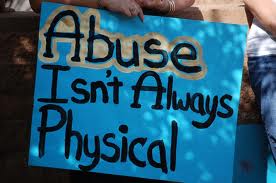Turning Social Security Claim Denials into Approvals

If you are disabled and unable to work, the Social Security Administration (SSA) exists to assist you with benefits payments. It is difficult to obtain approval for disability claims. In fact, as many as 33 percent of all Social Security disability (SSDI) claims are denied each year. This number increases to about 70 percent for new applications.

Having your disability claim denied can have a significant financial impact on you and your dependents. Though the Social Security Administration places a number of limitations on SSDI claims, you can often find help if your claim is denied. Read on for some tips on how to handle a denial of SSDI benefits.
Reasons for Denial of SSDI Claims
Income
The SSA imposes an income limit on SSDI. If you earn too much from working, your claim could be denied. In 2013, you won’t qualify for SSDI if you earn more than $1,500 a month.
Duration
In addition, the SSA must believe your condition is severe enough to last at least a year or you won’t be able to collect benefits.
No Main Cause or Medical Problem
If your application lists a number of impairments, but no main cause or medical problem, you could be denied. If you list a medical problem, the way you describe it might not meet the criteria in the Social Security Administration’s listing for that particular problem.
Severity of Impairments
And often, the chances of winning your claim depend on the severity of your impairments. If you continued working after your condition began, you could be denied because your condition will not be considered severe enough.
New Claimant
In addition, many SSDI claims are denied the first time a new claimant applies. If you continue to file new applications, SSA will typically continue to deny your claim. Using the appeals process gives you a better chance of winning an approval.
It’s most important to get an attorney to represent you. Nearly 90 percent of the claimants who reach a hearing have legal representation. Contact a disability law attorney like www.disabilitydenials.com to help you navigate the process and make sure your rights are protected.
The Social Security Disability Appeals Process
The process of appealing SSDI claims has several stages:
1. Reconsideration of your initial application. You can request a formal reconsideration within 60 days of your initial denial.
2. Requesting a hearing with an administrative law judge (ALJ). If your reconsideration is denied, this is the next step. A hearing date can take up to a year.
3. Appealing the decision of the ALJ with the Social Security Appeals Council (SSAC).
4. Filing an appeal of the SSAC’s decision in federal court.
After The Appeal
After a denial of benefits, the important thing to do is stay with it. While more than two-thirds of claims are initially denied, at least two-thirds of those who reach the hearing level are eventually approved.
Filing an appeal is an important step in the process of getting your claim approved. Just because the process isn’t simple or easy doesn’t mean it’s insurmountable.
It’s important to make sure you provide enough detailed information on your appeal, especially about how your disability affects your daily life. Include thorough information about your doctors and the treatment you’ve received, and continue to update that information while you’re appealing.
Writer LaGeris Underwood Bell offers this article in the hopes the basics of SSDI claims may be clearer to readers who need this assistance. An experienced attorney is available at www.disabilitydenials.com. If your SSDI claim is denied, you have recourse and can secure the services of a legal team before you launch your appeal.







